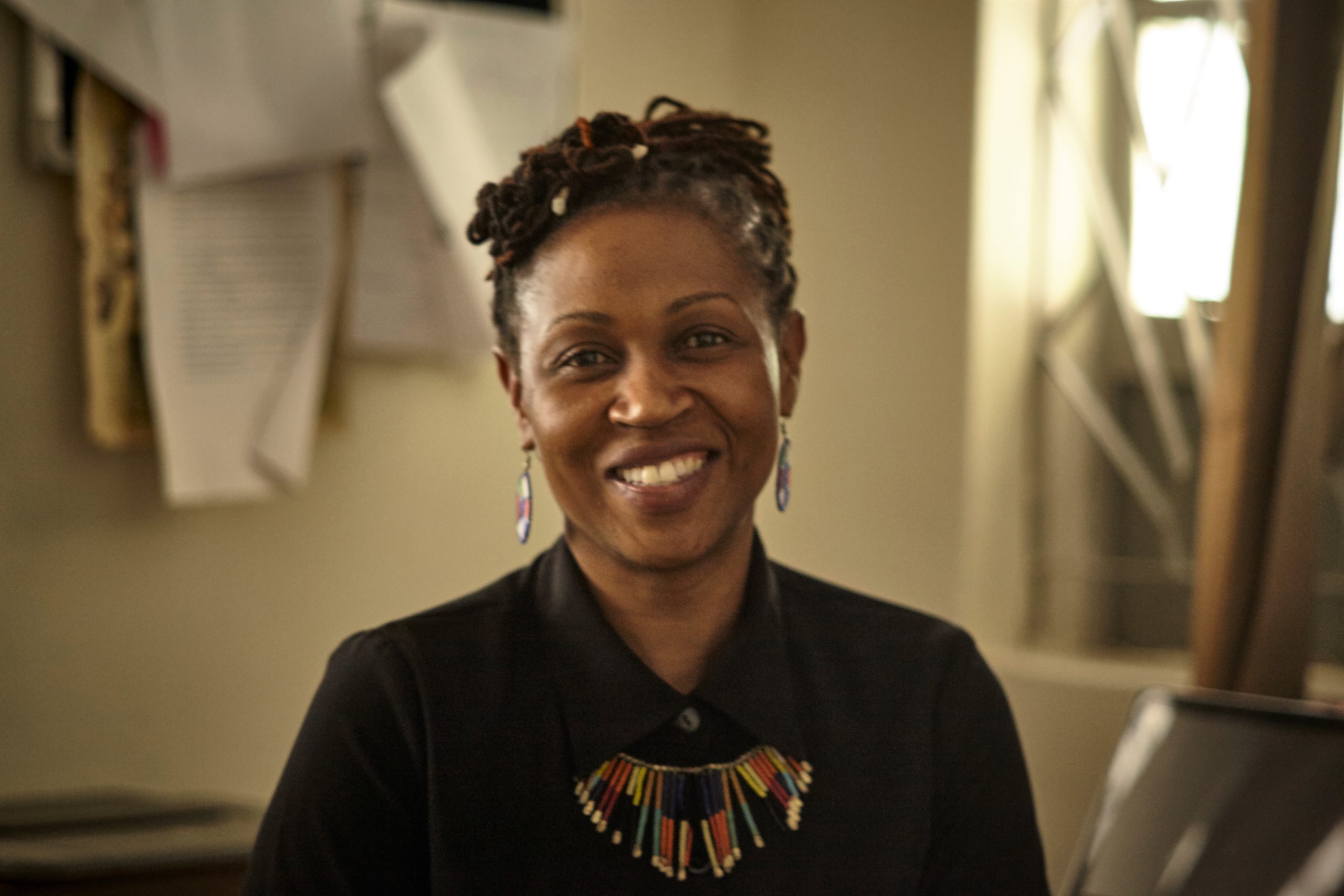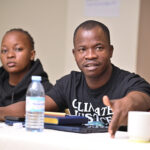This article was published more than 4 years ago.
Makela needed an ally. A 60-year-old survivor of domestic violence, she now faced the prospect of losing her rightful home—in the middle of a global pandemic.
After years of abuse, Makela’s husband had abandoned her. When a judge granted them equal shares of their family land in the Mukono District of Uganda, he sold his portion, remarried, and left Makela with their children. Five years later, sick and strapped for cash, he returned to torment her. With their two older sons, he broke into her house and beat her, vowing not to stop until she surrendered her share of the land.
When the local authorities refused to help, Makela reached out to the Center for Domestic Violence Prevention (CEDOVIP), a women’s rights organization based in Kampala. There, she met Tina Musuya, CEDOVIP’s executive director and a fierce champion for survivors of abuse.
As COVID-19 surged, governments around the world responded with curfews and stay-at-home measures intended to limit community spread. In Uganda, the state issued a strict lockdown that severely limited movement. But for women facing domestic violence at home, lockdown entails its own life-threatening risks.
“Quarantine measures increased face-to-face exposure of victims to perpetrators,” says Tina. “The Uganda police registered over 3,000 cases of domestic violence in just one month.”

In response, Fund-supported organizations like CEDOVIP stepped in to provide crucial support to women trapped at home with their abusers.
After hearing her story, Tina helped Makela bring her case to the Nakifuma Magistrate court, which granted her a protection order that prevented her sons, her estranged husband, and his relatives from stepping foot on her property. CEDOVIP also offered Makela financial support, which she used to cover transportation costs to and from court, to install metallic doors on her house, and to pay for medical treatment after she sustained injuries in a violent encounter with her sons.
“When I reached out to CEDOVIP, they listened to my case and took all necessary measures to support me,” says Makela. “It has now been three months of calm and peace.”
With the Fund’s support, Tina and CEDOVIP have been able to help at least 300 survivors like Makela access the emergency services they need, including medical care and legal support. They’ve provided personal protective equipment to staff, other activists, and community members. And through their community engagement and advocacy, they’ve successfully lobbied the Ugandan state to respond to the escalating crisis of gender-based violence. In May, Ugandan President Yoweri Musveni spoke publicly about the increase in domestic violence.
“I feel proud that we were able to hold various actors including government departments accountable to protecting women and girls from violence,” says Tina. “As a result, the Uganda police force set up toll free help lines for survivors of violence to call for support and many other actors set up emergency response services.”
The Fund’s support has been a crucial resource during the pandemic, says Tina. “The Fund stood with us at this difficult time … and checked in with us to know how we were doing. This was true feminist sisterhood that kept us motivated.”
Uganda’s tough approach to COVID-19 has successfully slowed its spread, but the deleterious effects of strict lockdowns are likely to linger. “More than ever, CEDOVIP’s work is urgently needed to ensure that the gains made on gender equality in Uganda are not pushed back,” says Tina.
Makela’s story, like so many others, is a moving testament to the immense impact of local action. Across the globe, courageous frontline activists like Tina are fighting for the rights of people facing injustice, inequality, and hardship. The Fund is proud to provide the financial and strategic support they need to succeed.


